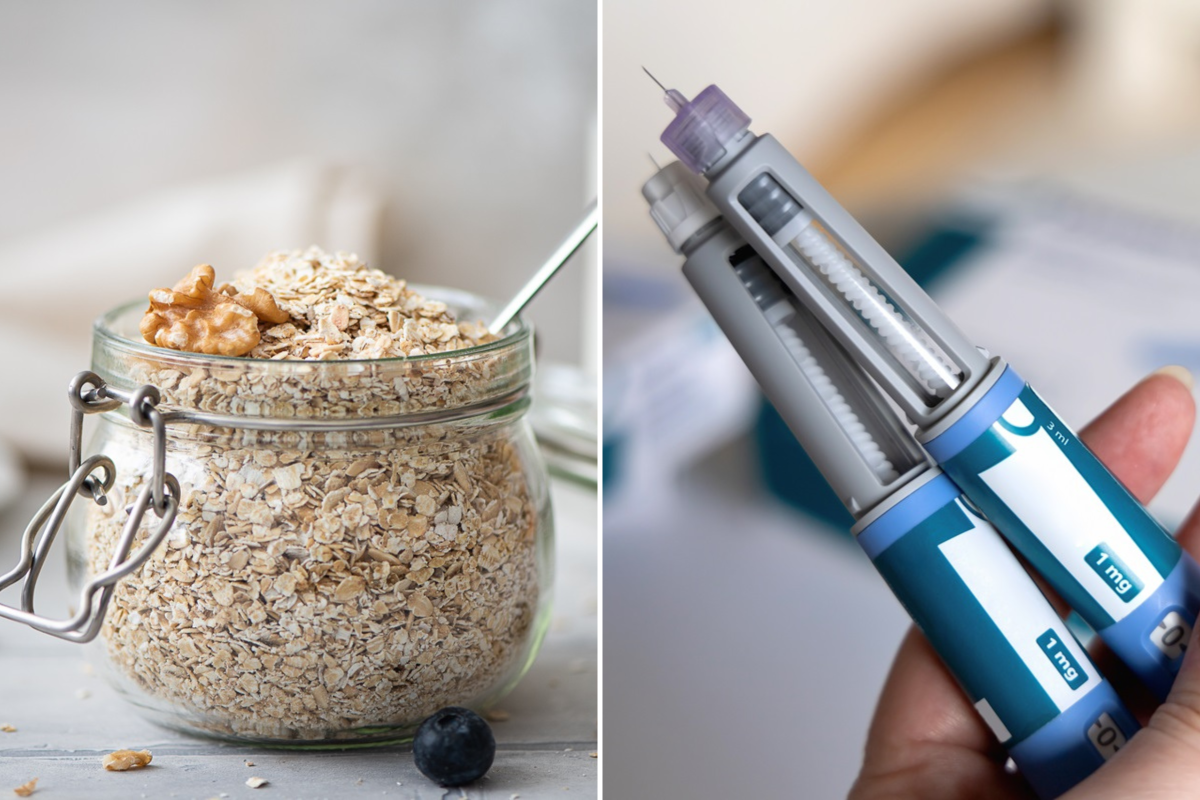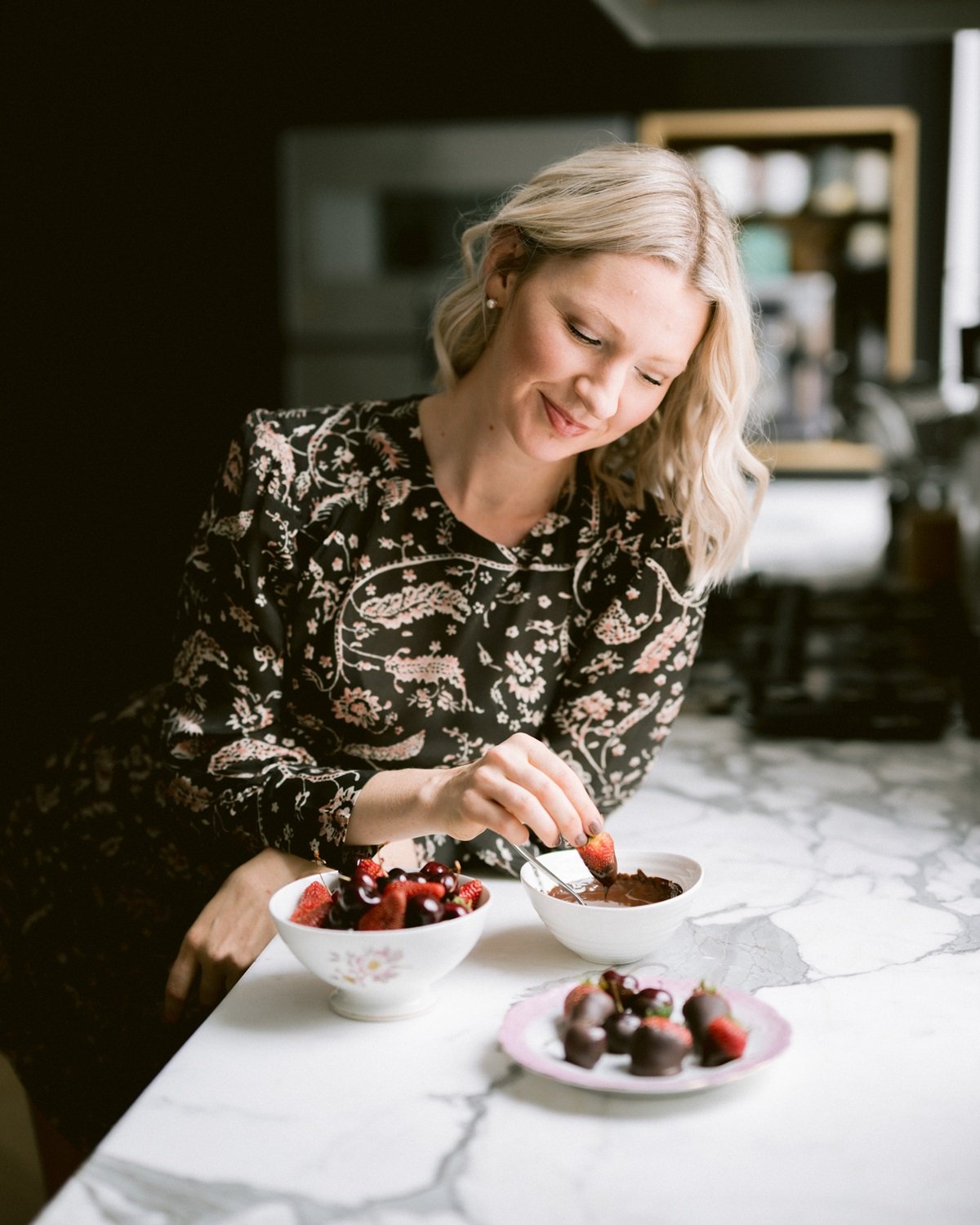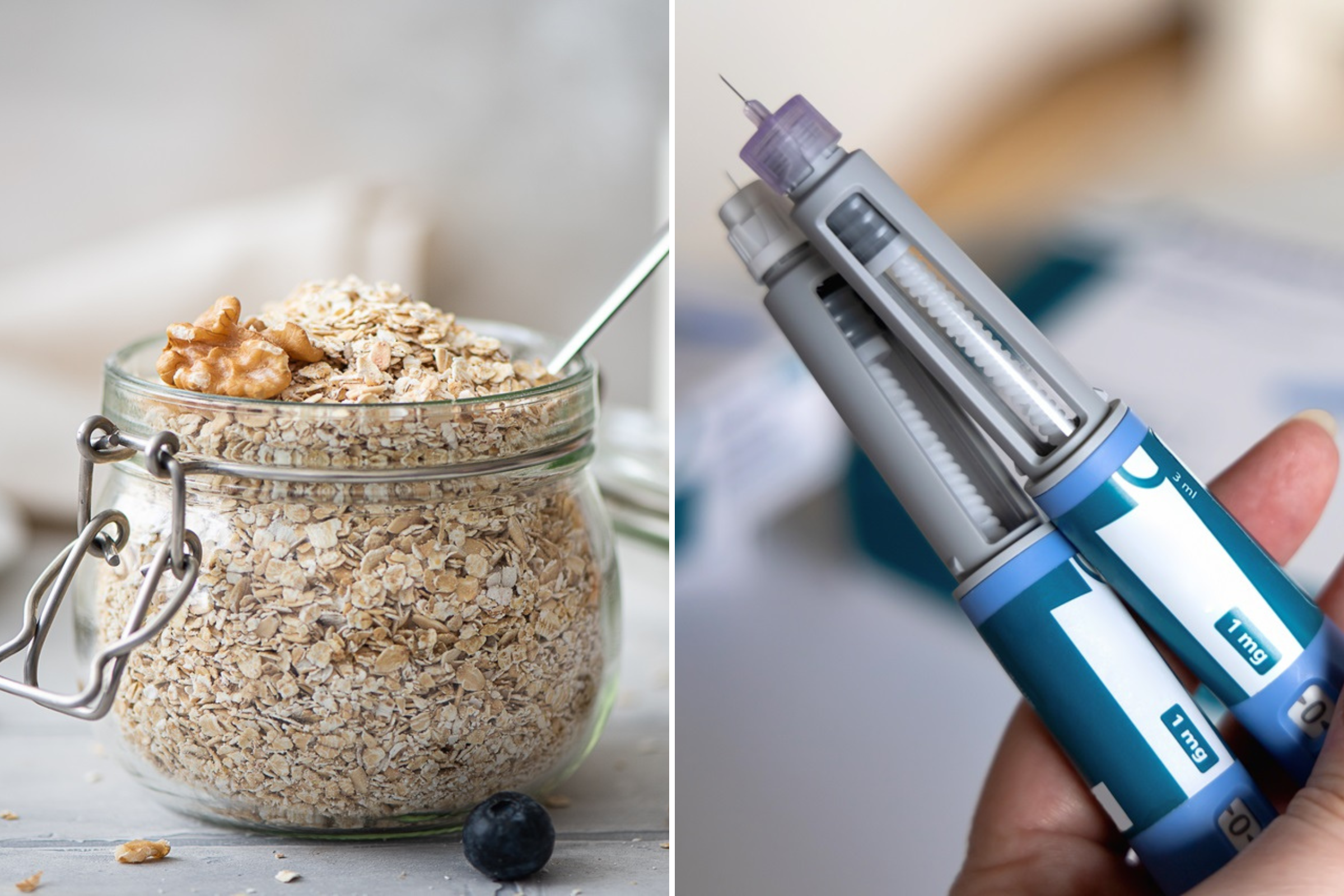With so many different fad diets to choose from, it seems like everyone is searching for a quick fix to shed the pounds practically overnight. From Atkins to the keto diet, we’ve seen it all, but now there’s another diet that’s gaining attention on social media: the “oatzempic” trend.
The TikTok craze is a drink consisting of half a cup of rolled oats, one cup of water, lime juice, and a sprinkle of cinnamon. Contrary to the name, oatzempic doesn’t contain any Ozempic (medication known to cause quick weight loss), but the oat drink promises to help people lose up to 40 pounds in two months, and the hashtag is quickly gaining momentum, with over 1,700 tags.
Dr. Eldad Einav
It’s already enticed many social media users, but experts are not convinced. Dr. Eldad Einav, a weight loss doctor, told Newsweek that he thinks oatzempic is just another “magic potion diet” which vows to help people lose weight quickly without addressing the underlying factors that lead to weight gain.
With over 25 years of clinical experience, Einav has seen countless fad diets come and go—diets that many people try without considering the risks they could pose.
So, before you start rolling out any oats to give it a go, Newsweek spoke to a number of dietitians to find out what they make of TikTok’s latest weight loss hack.
It Doesn’t Offer Nutritional Value
When it comes to losing weight healthily, slow and steady is the name of the game, as the Centers for Disease Control and Prevention (CDC) recommends losing 1 to 2 pounds per week to keep it sustainable.
In comparison, oatzempic claims to help people lose up to 5 pounds a week, which is why registered dietitian and nutritionist Maya Feller tells Newsweek that it’s “another dangerous and restrictive fad diet.”
Sure, the drink may sound healthy at first and oats are a good source of fiber, but Feller, from Brooklyn, New York, suggests that oatzempic doesn’t offer anywhere near enough vitamins, minerals, protein, or fats to be a sufficient meal replacement.
“Following this trend can lead to the loss of lean body mass which has the potential to slow the metabolism, and loss of water can lead to dehydration. When followed for long periods of time, I’d be concerned about developing nutrient deficiencies,” Feller said.

Olga Gagarova / Carolina Rudah/Getty Images
Weight loss is different for every individual, but Feller, of Maya Feller Nutrition and the author of Eating from Our Roots: 80+ Healthy Home-Cooked Favorites from Cultures Around the World, wouldn’t encourage anyone to try this latest TikTok diet.
She said: “Trends like this are very dangerous for young people in a stage of growth because limiting nutrients can negatively impact physical development and cognitive health. This could also be dangerous for people taking medication, or those with a medical condition.
“I would warn anyone considering trying oatzempic to steer clear. It’s dangerous both physically and psychologically, and I’m concerned that extreme weight loss is a social norm and encouraged by any means possible.”
There’s No Evidence to Back It Up
Simply consuming the drink as a snack is fine, according to Abbey Sharp, registered dietitian and CEO of Abbey’s Kitchen Inc. But as it only contains around 140 calories and contains laxative properties, she says that it’s not adequate for a meal replacement and it’s “a recipe for an unhealthy relationship” with food.

@abbeyskitchen/Provided
She told Newsweek: “Our body has a preferred weight range and, while it’s not impossible to move the range, it can be hard to quickly jump outside of it. Our bodies will fight tooth and nail to defend itself by increasing hunger hormones, quieting satiety hormones, making you fatigued so you move less, and forcing you to think about food.”
The hashtag might be gaining attention, but Sharp, from Toronto, Canada, says it’s “not evidence based,” and no professional would advocate using it for weight loss. Indeed, many experts have debunked the trend on social media, including dietitian Taylor Grasso (@simplyhealthyrd) whose video has more than 346,400 views and 7,500 likes on TikTok.
“This has the power to do major damage to growth, normal maturation, hormone regulation, and most concerningly, one’s relationship with food. And it can be really hard to unlearn dangerous diet culture, so I worry mostly for young folks on TikTok who see trends like this,” Sharp continued.
Instead of putting your body through such a drastic calorie deficit, she adds that there are far more effective ways to get summer body ready. Her advice is to follow the three S’s: slow, steady, and sustainable. “If you can’t do a diet or way of eating for life, there is no point in starting it,” Sharp says.
So, maybe it’s best to save the oats for a bowl of porridge instead, as Einav suggests this is just “a risky gamble with your health,” and he urges people not to fall for the hype.
Is there a health issue that’s worrying you? Let us know via [email protected]. We can ask experts for advice, and your story could be featured on Newsweek.
Uncommon Knowledge
Newsweek is committed to challenging conventional wisdom and finding connections in the search for common ground.
Newsweek is committed to challenging conventional wisdom and finding connections in the search for common ground.

Rachel Carter is a health and wellness expert dedicated to helping readers lead healthier lives. With a background in nutrition, she offers evidence-based advice on fitness, nutrition, and mental well-being.







